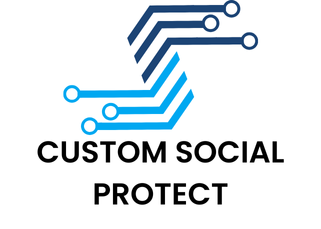In today’s rapidly evolving digital age, ensuring the integrity and security of voting systems has become paramount, especially as the world explores innovative ways to conduct elections. With advancements in blockchain technology, many have begun to see the promise of blockchain-based voting systems as a means to enhance the transparency and security of the electoral process. This article delves into how you can ensure data integrity and security in such systems, offering a comprehensive understanding of the mechanisms at play and the potential challenges to consider.
Blockchain technology has garnered significant attention for revolutionizing various sectors, and the electoral process is no exception. Blockchain-based voting systems operate on a decentralized ledger, designed to record votes in a manner that ensures transparency, security, and integrity. Unlike traditional voting systems, which often rely on paper ballots and manual counting, blockchain voting leverages cryptographic techniques to secure voter data and verify the authenticity of each vote.
In parallel : Mastering Compliance: A Guide to Adhering to Global Cybersecurity Standards in AI Applications
In essence, blockchain voting systems are built to address many of the issues plaguing conventional voting methods, such as fraud, tampering, and errors in vote counting. By leveraging blockchain technology, each vote is recorded as a transaction on a blockchain, making it virtually impossible to alter without detection. This method offers a promising alternative to traditional and electronic voting systems, particularly in terms of safeguarding the electoral process’s integrity.
However, ensuring the security of these systems involves addressing various technical and practical challenges. Understanding these aspects is critical to appreciate the full potential of blockchain-based voting and its implications for protecting American democracy and beyond.
In the same genre : Essential Strategies for Optimizing AI Model Training in Distributed Systems
The Role of Blockchain Technology in Voting Security
Blockchain technology’s primary advantage in voting lies in its decentralized nature and the immutability of the data it records. Each vote, once cast, is stored on numerous nodes spread across the blockchain network, making it exceedingly difficult for malicious actors to alter or delete any data without the consensus of the network.
Consensus mechanisms like Proof of Work (PoW) or Proof of Stake (PoS) play a crucial role in ensuring the security and integrity of the voting process. These mechanisms require network participants (nodes) to validate transactions, i.e., votes, ensuring that only legitimate votes are counted. This decentralized validation process significantly reduces the risk of fraudulent activities and tampering.
Moreover, blockchain’s cryptographic foundations ensure that each voter’s identity and vote remain confidential and secure. Public and private keys are used to encrypt voter information, ensuring that only authorized parties can access and verify this data. This cryptographic security is a key factor in addressing concerns around electronic voting systems’ vulnerabilities.
For instance, in a blockchain-based voting system, once a vote is cast and recorded on the blockchain, it cannot be altered or deleted without consensus from the majority of the network. This feature ensures the integrity of the voting data, as any attempt to tamper with the votes would be evident to all network participants.
Despite these strengths, the implementation of blockchain voting systems is not without its challenges. Technical complexities, voter education, and ensuring transparency while maintaining privacy are critical aspects that need careful consideration. Addressing these challenges is essential to harness the full potential of blockchain technology in enhancing voting security.
Challenges in Implementing Blockchain-Based Voting Systems
While blockchain technology offers promising solutions for ensuring the integrity and security of voting systems, its implementation is fraught with challenges. These challenges range from technical hurdles to social and legal considerations that need to be addressed to make blockchain voting a viable option for mainstream elections.
One of the primary technical challenges is the scalability of blockchain networks. Most current blockchain platforms, like Bitcoin and Ethereum, face limitations in terms of transaction processing speed and capacity. Given the high volume of votes cast in national elections, ensuring that a blockchain network can handle this load efficiently is crucial. Scalability solutions, such as sharding and off-chain transactions, are being explored but are not yet fully mature.
Another significant challenge is the security of the voting process itself. While blockchain can ensure the integrity of recorded votes, the process of casting votes—especially through internet voting or online voting platforms—remains vulnerable to cyber-attacks. Ensuring secure and user-friendly interfaces for voters is essential. This includes robust authentication mechanisms to prevent unauthorized access and data breaches.
Voter education and accessibility are additional hurdles. Blockchain technology is still relatively unfamiliar to the general public, and its complexity can be a barrier to widespread adoption. Educating voters on how blockchain-based voting systems work and ensuring they can use these systems confidently and correctly is critical. This also involves making the technology accessible to all voters, including those with disabilities or those without reliable internet access.
Legal and regulatory frameworks also pose challenges. Current election laws in many countries, including the United States, are based on traditional voting methods and may not be well-suited to regulate blockchain-based systems. Updating these laws to accommodate new technology while ensuring the integrity and transparency of the electoral process is a complex task that requires collaboration among lawmakers, technologists, and election officials.
Despite these challenges, ongoing research and pilot projects, as highlighted by institutions like Google Scholar and the National Academies, are paving the way for more secure and transparent blockchain voting systems. Addressing these challenges head-on is essential to realize the full potential of blockchain technology in revolutionizing the way we conduct elections.
Ensuring Data Integrity in Blockchain Voting Systems
Ensuring data integrity is crucial for the credibility and trustworthiness of blockchain-based voting systems. Data integrity in this context refers to maintaining the accuracy and consistency of voter data throughout the entire voting process, from casting the vote to counting and recording it on the blockchain.
One of the key methods to ensure data integrity is through the use of cryptographic hash functions. These functions generate a unique hash value for each vote, which is stored on the blockchain. Any alteration in the vote would result in a different hash value, making it easy to detect tampering. This immutable record of votes ensures that once a vote is cast, it cannot be altered without detection, thereby maintaining the integrity of the voting data.
Another critical aspect is the use of smart contracts. Smart contracts are self-executing contracts with the terms of the agreement directly written into code. In the context of voting, smart contracts can automate various processes, such as vote counting and verification, ensuring that these processes are carried out correctly and transparently without human intervention. This automation reduces the risk of human error and fraud, further enhancing data integrity.
Additionally, implementing robust access control mechanisms is essential to protect voter data. Only authorized personnel should have access to sensitive information, and all actions should be logged and monitored to detect any unauthorized activities. Multi-factor authentication and encryption are critical tools in this regard.
Decentralization is another vital factor in ensuring data integrity. By distributing the voting data across a network of nodes, blockchain technology eliminates single points of failure and makes it difficult for malicious actors to compromise the system. Each node in the network has a copy of the blockchain, and any changes to the data must be approved by a consensus of the nodes, ensuring that no single entity can tamper with the votes.
Implementing these measures effectively can significantly enhance the integrity and security of blockchain-based voting systems. However, continuous monitoring and improvement are necessary to adapt to new threats and challenges in the evolving digital landscape.
Future Prospects and Conclusion
The potential of blockchain-based voting systems is immense, but realizing this potential requires a concerted effort to address the various challenges and ensure the integrity and security of the voting process. As research and pilot projects continue to evolve, the insights gained can pave the way for more secure, transparent, and efficient elections.
The future of blockchain voting looks promising, with advancements in scalability, security, and usability making it a viable option for mainstream adoption. Efforts by institutions like the National Academies and Google Scholar are instrumental in driving innovation and best practices in this field. By leveraging blockchain technology, we can create a voting system that not only ensures the integrity of the electoral process but also enhances voter trust and participation.
In conclusion, ensuring data integrity and security in blockchain-based voting systems involves a combination of cryptographic techniques, consensus mechanisms, robust access control, and continuous improvement. By addressing these aspects, we can build a voting system that upholds the principles of transparency, security, and integrity, crucial for the functioning of a healthy democracy. The journey toward widespread adoption of blockchain voting is undoubtedly challenging, but with the right approach and commitment, it has the potential to revolutionize the way we conduct elections and secure the vote for future generations.











